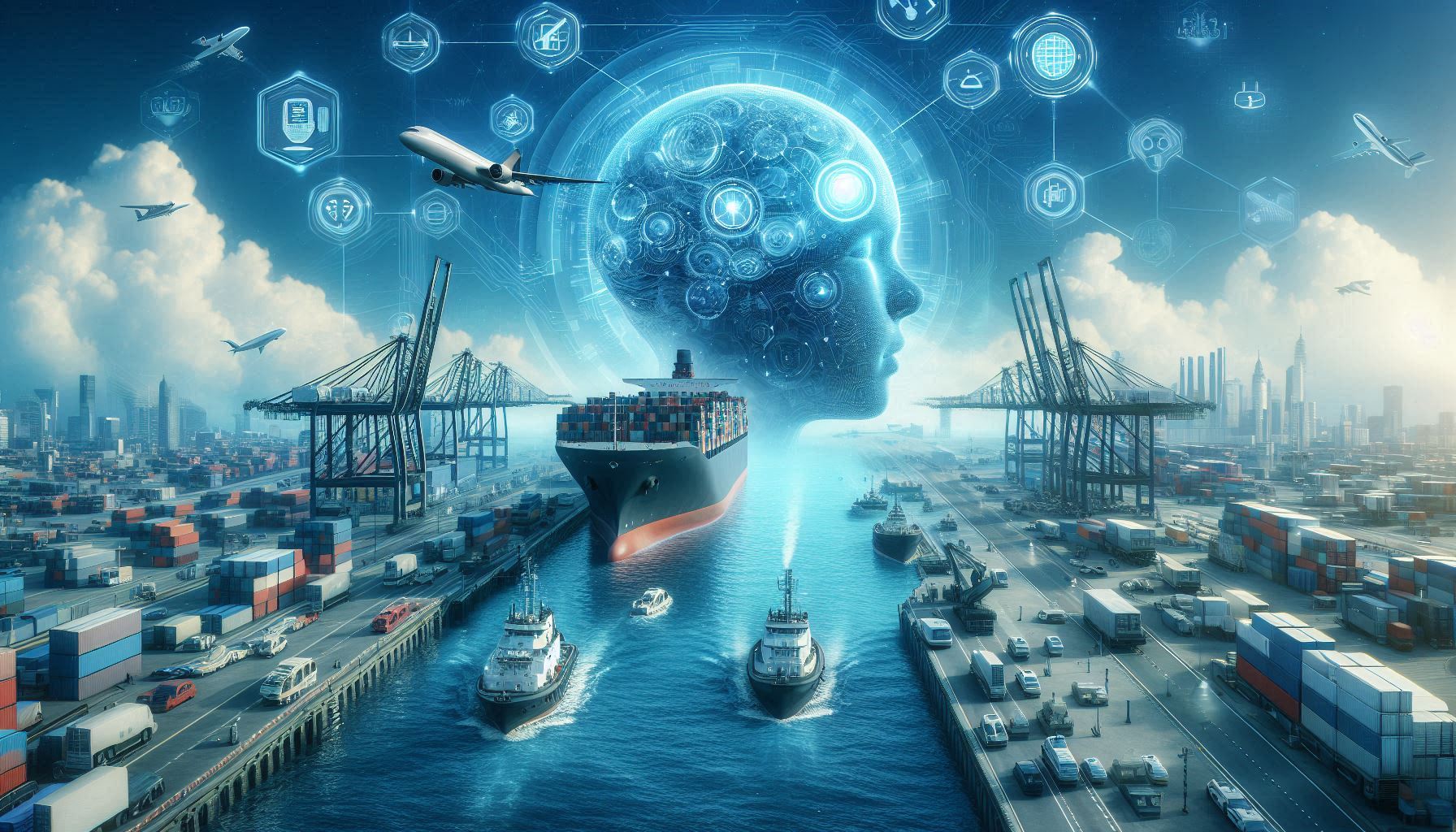This article explores modern technologies such as automation, blockchain, and artificial intelligence in the maritime transport industry and their impact on improving the performance of this sector, particularly in ship chartering in Iran and the Middle East.
The maritime transport industry, as a vital pillar of global trade, has always faced challenges such as high costs, unexpected delays, and inefficiencies. These challenges not only negatively affect economic productivity but can also impact business relationships and the reputation of companies. With the advancement of modern technologies and innovations entering this industry, new tools and opportunities have been introduced to improve efficiency, reduce costs, and increase safety.
Automation
Automation plays a key role in increasing productivity and reducing costs in the maritime transport industry, making it one of the modern technologies transforming the sector. The use of automation systems in various processes, including loading and unloading ships, trip planning, fleet management, and monitoring ship conditions, significantly improves operational efficiency. These technologies not only increase operational accuracy but also help reduce human errors and improve scheduling.
For example, automation systems can reduce waiting times for ships at ports and create greater efficiency in loading and unloading operations. In ship chartering, automation can make the process of renting vessels faster and more efficient, which in turn increases customer satisfaction and reduces operational costs.
Role of Automation:
Automated Operations: The use of automation systems in loading and unloading ships can significantly reduce time and operational costs. By automating these processes, the risk of human error is minimized. For example, the use of intelligent systems in loading can reduce waiting times for ships at ports and create greater efficiency in these operations.
Reduction of Human Errors: By automating processes, human errors are minimized. This can help improve safety and reduce accidents during operations. Automation can also improve coordination between different departments of operations. For instance, automation systems can automatically manage scheduling and coordination between loading and unloading ships.
Smart Fleet Management: Automation enables shipping companies to manage their fleets intelligently. This management includes monitoring ship conditions, managing time and costs, and optimizing routes. With these modern technologies, companies can make better use of their resources and avoid unnecessary costs.

Blockchain
Blockchain is one of the modern technologies in the maritime transport industry, providing more transparency and security in the ship chartering process. By using blockchain, all transactions and chartering contracts are registered in an immutable and transparent manner, increasing trust between contract parties.
Additionally, blockchain can help chartering companies in supply chain management and cargo tracking by providing up-to-date, accurate information about the status of goods. This transparency allows all stakeholders in the supply chain to easily monitor the status of their shipments and respond faster in case of problems. Blockchain can also reduce administrative costs and the time required to complete transactions by eliminating intermediaries and streamlining commercial processes.
Artificial Intelligence (AI)
Artificial intelligence (AI), with its advanced data analysis and forecasting capabilities, can significantly optimize the ship chartering process. AI algorithms can analyze maritime traffic patterns and suggest the best transport routes, which reduces travel time and fuel costs. Furthermore, AI can be effective in predicting maintenance needs for ships and managing human resources.
AI systems can monitor the condition of ships and predict their maintenance needs, helping companies prevent major issues and extend the lifespan of ships. In ship chartering, AI can assist companies in making smarter decisions and improving their services.
Role of Artificial Intelligence:
Demand Forecasting: By analyzing historical data and using advanced algorithms, transport companies can predict future demand and plan accordingly. This helps them operate more efficiently, avoid extra costs, and optimize inventory and human resources.
Route Optimization: AI can analyze weather data, traffic conditions, and other environmental factors to choose the safest and most efficient route for ships. This feature can reduce travel time and minimize fuel costs. For instance, AI algorithms can help transport companies use less-congested and safer routes, thereby reducing operational costs.
Fleet Management: AI systems can monitor ship conditions and predict maintenance needs. This helps companies prevent serious problems and extend the lifespan of their ships. With AI systems, companies can identify optimal times for repairs and maintenance, avoiding sudden breakdowns.
Conclusion
Modern technologies such as automation, blockchain, and artificial intelligence play a crucial role in improving efficiency and reducing costs in the maritime transport industry. These technologies offer innovative solutions to help transport companies tackle challenges and optimize their operations.
In ship chartering, these innovations can increase operational efficiency and allow chartering companies to offer better services to their customers, helping them remain competitive in the global market. Despite challenges like economic sanctions and logistical issues, investing in these new technologies and collaborating with technology companies can pave the way for further development in this industry, positioning Iran as a key player in the ship chartering market.
The Role of Versk in Maritime Transport Services
Versk is recognized as one of the leading maritime transport companies in Iran and the Middle East, leveraging extensive experience and cutting-edge technologies like automation, blockchain, and artificial intelligence. Versk offers optimized journey and time chartering services through blockchain to ensure contract transparency and security and uses smart systems for optimal route and cargo management, making it the best choice for freight forwarders and cargo owners.
Moreover, Versk’s advanced automation systems reduce waiting times for ships at ports and enhance operational efficiency. By choosing Versk, you can benefit from reliable, efficient, and high-quality services, coupled with modern technologies in the maritime transport industry, ensuring your needs are met in the best possible way. Don’t miss the opportunity to step into a brighter future in international trade with Versk.

